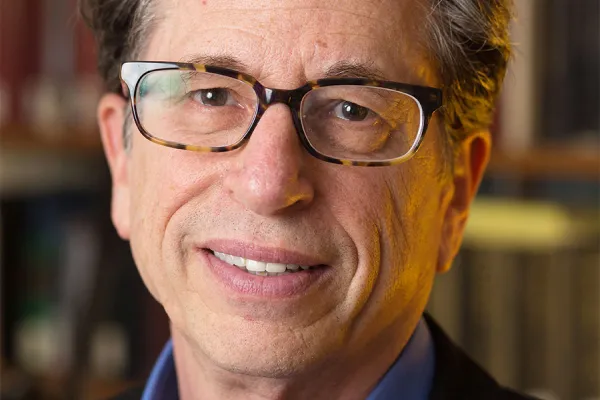Prof. Daniel K. Gardner Chosen for Prestigious Andrew Carnegie Fellows Program
Research & Inquiry

Published April 19, 2016
Daniel K. Gardner, the D.W. Morrow Professor of History at Smith, is one of just 33 scholars named today as a winner in the 2016 Andrew Carnegie Fellows Program.
One of the most prestigious and most generous fellowships for social science and humanities research, the Carnegie Fellowship provides up to $200,000 to fund one or two years of scholarly research and writing on an urgent challenge to U.S. democracy and international order.
Gardner—who is a highly regarded scholar of Chinese intellectual history and the Chinese environment—will use his Carnegie Fellowship to study China’s current campaign to build a sustainable society, what the leadership there calls an “ecological civilization.”
In a project titled “Imagining an ‘Ecological Civilization’: China’s Environmental Turn in the 21st Century,” Gardner will examine China’s longstanding “pollute first, clean up later” approach to economic growth, the forces leading from the “pollute first” approach to the recent embrace of “ecological civilization,” and, finally, the challenges, both domestic and international, that the campaign faces.
During the two–year project, which he will begin in July 2016, Gardner will work with colleagues associated with NGOs, environmental research institutes, government and the “green media” in China.
“After years of ‘pollute first, clean up later,’ China has announced its intention to forge a new path toward eco-civilization,” Gardner notes, “and the rhetoric has been fascinating—and maybe even persuasive. But will China be able to surmount the challenges that have begun to emerge? Will Beijing’s actions have consequences for the world order? What role, if any, should the rest of the world play in assisting China down this path? That’s what I hope to find out.”
Gardner has outlined his ideas about China’s approach to the environment in New York Timesop-eds from March 2015 and September 2014 , as well as in the international media. A recent story in Smith College’s Insight also featured his research.
Gardner’s Carnegie fellowship will allow him to examine the recent history of China’s environment, and then look ahead several decades to examine the challenges that arise from the state’s urbanization policy, the country’s rising middle class, the state’s one-party structure and the effects of climate change.
About Daniel K. Gardner
Daniel K. Gardner, the Dwight W. Morrow Professor of History at Smith, specializes in the intellectual and cultural history of pre-modern China and China’s environment today. He is a senior fellow at the Center for Sustainable Development at Columbia University’s Earth Institute in the China Sustainability Project.
Gardner’s newest book, Environmental Pollution in China: What Everyone Needs to Know, is forthcoming with Oxford University Press. Among his recent books are Confucianism: A Very Short Introduction (Oxford University Press, 2014), The Four Books: The Basic Teachings of the Later Confucian Tradition (Hackett Publishing, 2007), and Zhu Xi’s Reading of the Analects: Canon, Commentary, and the Confucian Tradition (Columbia University Press, 2003).
Gardner teaches in Smith’s Department of History, East Asian Studies Program and Environmental Science and Policy Program. His courses include surveys of Chinese history and more thematic courses, such as “The World of Thought in China,” “Culture and Power in Imperial China” and “Environment and Society in Contemporary China.”
Gardner received his bachelor’s degree from Princeton University and his doctorate from Harvard University.
About the Andrew Carnegie Fellows Program
The Andrew Carnegie Fellows Program provides the most prestigious and most generous fellowships advancing research in the social sciences and humanities. The anticipated result of each fellowship is the publication of a book or major study.
About Carnegie Corporation of New York
Carnegie Corporation of New York was established in 1911 by Andrew Carnegie to promote the advancement and diffusion of knowledge and understanding. In keeping with this mandate, the Corporation’s work focuses on the issues that Andrew Carnegie considered of paramount importance: international peace, the advancement of education and knowledge, and the strength of our democracy.